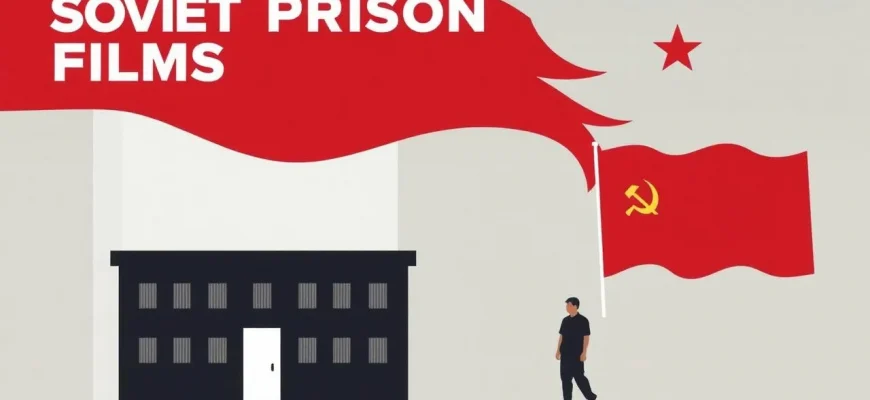Soviet cinema has often explored the harsh realities of life in prison, offering a unique perspective on human resilience, the quest for freedom, and the complexities of the justice system. This curated list of 10 Soviet films delves into the grim world of incarceration, showcasing stories of survival, redemption, and the indomitable human spirit. These films not only provide a window into the Soviet penal system but also offer universal themes of hope, camaraderie, and the fight against oppression, making them valuable for film enthusiasts and those interested in social history.

The Cold Summer of 1953 (1988)
Description: Set in the aftermath of Stalin's death, this film explores the chaos in a prison camp, focusing on the struggle for power and survival among the inmates.
Fact: The film was one of the first to openly critique the Soviet prison system.
 Watch Now
Watch Now 
The Ascent (1977)
Description: This film by Larisa Shepitko is not just about prison but captures the essence of captivity during WWII, where two Soviet partisans are captured by German forces, leading to a harrowing journey of survival and moral dilemmas.
Fact: The film won the Golden Bear at the Berlin International Film Festival in 1977, and it was Shepitko's last completed work before her untimely death.
 30 Days Free
30 Days Free 
The Return of the Musketeers (1989)
Description: This sequel to the famous "D'Artagnan and Three Musketeers" series includes a segment where D'Artagnan is imprisoned, showcasing themes of loyalty, betrayal, and escape.
Fact: The film was one of the last major Soviet productions before the dissolution of the USSR.
 30 Days Free
30 Days Free 
The Prisoner of Zenda (1984)
Description: This Soviet adaptation of Anthony Hope's novel focuses on the imprisonment and subsequent rescue of the king, highlighting themes of identity and duty.
Fact: The film was shot in the historic city of Riga, Latvia, adding to its authenticity.
 30 Days Free
30 Days Free 
The Edge (1993)
Description: This film delves into the psychological and physical struggles of a man sentenced to a Siberian labor camp, showcasing the brutality of the system and the will to survive.
Fact: The film was shot in real locations, providing an authentic backdrop to the story.
 30 Days Free
30 Days Free 
The Prisoner of Castle If (1988)
Description: Based on Alexandre Dumas' "The Count of Monte Cristo," this Soviet adaptation focuses on the protagonist's imprisonment and his subsequent escape, highlighting themes of revenge and justice.
Fact: The film was shot in the real Château d'If, the same location where the story's events take place.
 30 Days Free
30 Days Free 
The Zone (1995)
Description: Set in a post-Soviet prison, this film explores the harsh realities of life behind bars, focusing on the relationships and power dynamics among inmates.
Fact: The film was one of the first to openly discuss the conditions in Russian prisons post-Soviet Union.
 30 Days Free
30 Days Free 
The Prisoner of the Mountains (1996)
Description: While not strictly about prison, it captures the essence of captivity as two Russian soldiers are taken hostage in Chechnya, exploring themes of freedom and captivity.
Fact: The film was nominated for an Academy Award for Best Foreign Language Film.
 30 Days Free
30 Days Free 
The Man from the Boulevard des Capucines (1987)
Description: While primarily a comedy, it includes a subplot where the protagonist is briefly imprisoned, offering a satirical look at Soviet bureaucracy and justice.
Fact: The film was one of the first Soviet comedies to gain international recognition.
 30 Days Free
30 Days Free 
The Prisoner of If (1988)
Description: Another adaptation of "The Count of Monte Cristo," this film emphasizes the protagonist's imprisonment and his transformation into a master of vengeance.
Fact: The film was shot in various locations across the USSR to replicate the settings of the novel.
 30 Days Free
30 Days Free 








